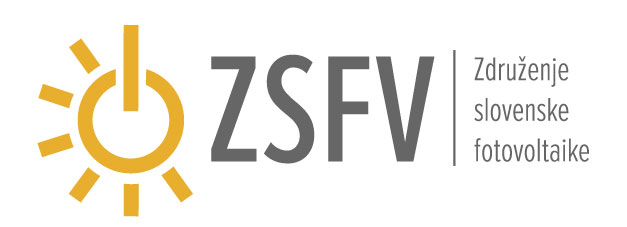- 26.
- oktober
- 2023
20 združenj odločno proti trgovinskim oviram
Namesto trgovinskih ovir, bi morali podpreti ustrezno industrijsko politiko
Executive Vice-President Maroš Šefčovič
CC: Commissioner Kadri Simon, Commissioner Thierry Breton
Dear Executive Vice-President,
We, the representatives of the solar PV sector on European and national level, write to draw your attention to the latest dynamics in the global solar PV sector, marked by steep reductions in solar PV module prices in Europe in recent months.
While declining costs are very welcome news for accelerating a cost-effective energy transition, it is also creating a precarious situation for European solar PV manufacturers which are building up their manufacturing capacities encouraged by the broad political support for reshoring a European PV value chain up to at least 30GW by 2030 as stated in the proposed EU Net Zero Industry Act. Some of these companies are currently at risk to go into insolvency as we have already witnessed the ingot producer Norwegian Crystals filing for bankruptcy on 21 August 2023. If not further prevented, the European ambition to reshoring solar PV production will be extremely hard to reach.
The situation adds to the critical urgency for the EU to develop and implement a strong and credible industrial strategy for solar PV.
The balanced solutions are there, and are crystal clear:
- First, we ask Member States and delegates to call on the European Commission to further adjust the EU State Aid framework (the Temporary Crisis and Transition Framework) and in particular to allow Member States to support running costs of factories – i.e. operational expenditure.
- Secondly, we call on Member States and delegates to swiftly-adopt the EU Net Zero Industry Act and set up specific Resilience Auctions systems in consumer markets in the coming months. Therefore, Article 20 of the NZIA should be tailored to allow member states to set up specific auctions of limited but growing volume reflecting the increasing European manufacturing capacities in line objectives of the Net Zero Industry Act and the European Solar Industry Alliance (ESIA) of at least 30GW by 2030 across the EU – proxy to 40% of the solar PV market. In addition, it is essential to avoid setting any pre-qualification criteria for solar PV as these could have a detrimental impact on the speed and cost-effectiveness of the energy transition and solar deployment in Europe.
- Thirdly, we ask Member States and delegates to call on the European Commission to accompany State Aid frameworks with an EU-wide financial support framework dedicated to the solar PV supply chain. This framework could be linked to the Innovation Fund and existing national support funds / mechanisms or instruments.
- Fourthly, we call on Member States and delegates to leverage as much as possible the Resilience and Recovery Funds (RRF) for supporting solar PV production. Good examples of that can be found in Italy[1] and The Netherlands[2].
With the right political will, all these points can be implemented in the short-term, well before the end of the year.
In the emergency we find ourselves in, we have limited time to act. We, therefore, urge EU leaders to spend this time focusing on the above constructive solutions. We cannot risk slowing down the solar-led energy transition at this critical moment in time.
As history has shown, investigating dumping practices and implementing trade barriers is the ultimate lose-lose strategy for Europe and should be dismissed.
Tariffs and market-wide barriers to entry endanger the currently rapidly growing PV market and its existing PV-ecosystem in Europe. This includes installers, developers as well as many manufacturers of components. It also endangers the political installation goals and would deprive consumers of the economies of scale, which make solar PV one of the most attractive energy generation technologies for both decentralized consumer markets and utility scale supply. We ask Member States and delegates to dismiss such proposals.
While creating tough conditions for European manufacturing companies, the recent price reductions in solar PV are a consequence of well-known market dynamics, with a combination of overcapacity on the supply side and overordering on the demand side resulting in sharp drops in price of solar modules and other system components[1].
The better strategy is to reward the European solar industry for the swift feat of strength they are prepared to deliver for Europe: a more resilient and less geopolitically dependent energy system, in line with the European Commission's stated goals.
The signatories to this letter are grateful for your consideration of the above points and stand ready to discuss this important topic with you as soon as possible.
Yours sincerely,

[1] The market dynamics are described in more detail in this recent analysis from SolarPower Europe https://api.solarpowereurope.org/uploads/Solar_Power_Europe_Price_Crisis_Market_Analysis_September_2023_0e62e63824.pdf?updated_at=2023-09-11T08:02:42.103Z
[1] Italian NRRP within investment chapter “Misura M2C2 Investimento 5.1, Rinnovabili e batterie”€400 million to be allocated into innovative PV modules, through “Contratti di Sviluppo” (CdS): a financing contract between a State financing company and the State
[2] National Economic Growth Fund subsidy awarded to SolarNL as the national research, innovation and industrial investment program to stimulate PV manufacturing in the Netherlands. National Growth Fund Grant, bringing the budget to €898 million of which €586 million come from private funding.








